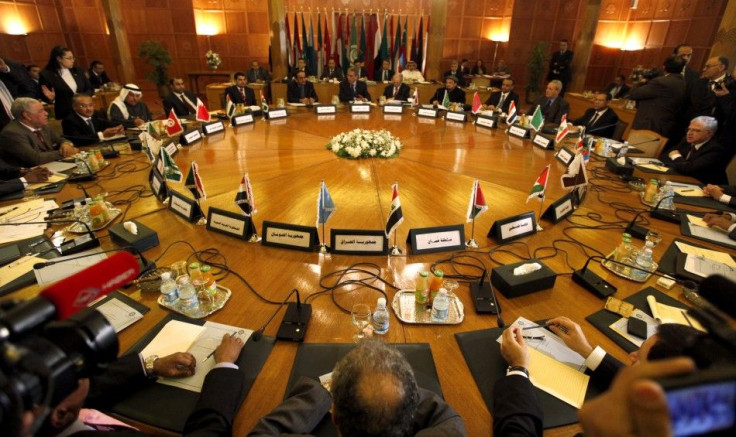Arab League Backs U.N. Action in Libya, Assured on Civilian Protections

Days into foreign military assaults on Libya, the Arab League has maintained support of a U.N. resolution authorizing the establishment of a no-fly zone over the country.
However the question of whether civilians have been killed in the process of destroying the country's air defenses raised concerns expressed by Amr Moussa, the Secretary General of the League of Arab States. He now says he has been assured about the primacy of civilian protection in the Western-led coalition bombings.
The Arab League's support for a no-fly zone over Libya was an important factor in the decision by members of the United Nations Security Council last week approving the use of military force to protect civilians.
Moussa's comments on Monday did not address the question about the veracity of reports that civilians in Libya had been killed, which a top U.S. official has dismissed as lies.
On Sunday, just hours after the Western-led coalition began bombing Libya, a Libyan government official said 64 people had been killed overnight.
Most of our targets, virtually all of our targets are isolated non-populated areas, air defense sites, U.S. Defense Secretary Robert Gates told reporters on Tuesday. And we've been very careful about this. And it's almost as though some people here are taking at face value Gaddafi's claims about the number of civilian casualties, which as far as I'm concerned, are just outright lies.
Moussa said Monday that the Arab League's support for U.N. action had not wavered.
My comment was done after what happened, Moussa told reporters in comments translated by the BBC. We are aiming, basically, to protect civilians under any circumstances. The protection of civilians is a great - is a difficult mission, especially in Libya. And according to the reports by those who are - have officially visited Libya - the situation is very serious in Libya and it threatens the security and safety of citizens.
Moussa, who represents a voluntary group of countries in Northern Africa and the Middle East, on Sunday reacted to reports that civilians had been killed during the bombardments, saying that coalition action had gone beyond establishing a no-fly zone.
He said the bombings had led to the deaths of many civilians.
What is happening in Libya differs from the aim of imposing a no-fly zone, and what we want is the protection of civilians and not the bombardment of more civilians, he said Sunday.
On Monday, Moussa maintained support for the U.N. resolution 1973, which also calls for a ceasefire and imposes harsher sanctions on the Gaddafi regime.
We have no contradiction with this resolution. Especially, it actually stressed that there should not be any ground forces of invasion or occupation of Arab - Libyan territory. However the danger facing a great number of civilians in Benghazi and outside Benghazi is another issue. My comment was done after what happened, he said.
Moussa explained that his top priority was on protecting civilians.
We will carry on and continue on protecting civilians and we would like to ask everybody to take this into consideration in any military operation. We have assurances that such operations, especially protection of civilians, will be the aim and the main objectives and we are all united along this issue, the Arab League and the Security Council.
On March 12, the Arab League issued its support for a resolution in the United Nations that demands a ceasefire in the conflict between rebels and the Libyan government led by Col. Muammar Gaddafi.
Military experts at the time said that establishing such a zone would require bombardments of Libyan air defenses.
The League's support came in the form of a statement accusing Gaddafi's regime of serious crimes and great violations which had stripped it of legitimacy.
Dealing with it is recognizing it, Moussa told reporters. The Arab League has officially asked the U.N. Security Council to impose a no-fly zone against any military action against the Libyan people.
© Copyright IBTimes 2024. All rights reserved.




















